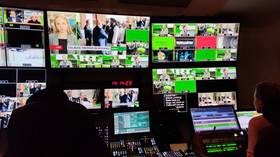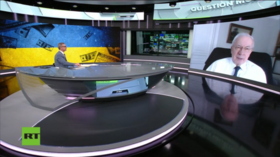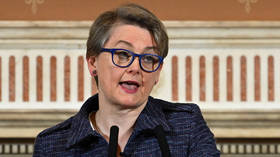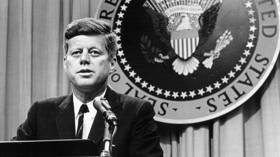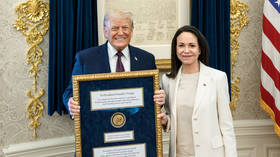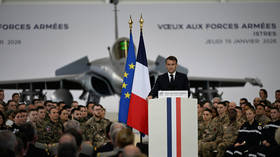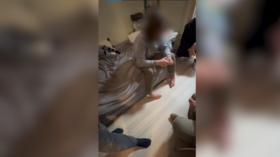Slavoj Zizek explains why RT is targeted in the West
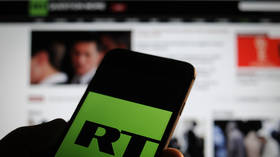
Even though the West is trying to paint RT as a purveyor of “Russian propaganda,” its treatment of the channel shows that it does not believe it to be just a propaganda machine, cultural philosopher Slavoj Zizek told RT.
“The West, by making these steps of trying to exclude RT, is basically displaying its fear of the possible influence of RT and even its trust in the power of RT,” he said.
“If they were sure that RT is just cheap Russian propaganda, [that] nobody takes seriously, then they would have said: ‘Please, my god, allow them.' That should have been their attitude and then it will be like listening to some old Stalinist speech – people laugh, nobody would be convinced.”
The most recent hostile act against RT came last December, when the new round-the-clock German-language channel RT DE was launched. The channel’s YouTube page was blocked on the day of the launch, while the broadcast itself was taken off air by European satellite TV operator Eutelsat shortly after under pressure from German media regulator MABB.
RT is targeted for being a platform, where certain topics that the West would have preferred to keep marginalized, receive coverage, he believes. Zizek, who has been referred to as “the most dangerous philosopher in the West,” told RT that he himself has been marginalized, with only a handful of outlets daring to publish him.
“Let me be very clear: Often I do disagree with… let’s call it the ‘Russian line’ – with what is on RT,” he said. “But obviously I prove it with my case that there are many topics where I can only express what I think, [if I] publish it as a comment on RT.”
Such marginalized topics include showing support for the Palestinian cause, Zizek noted. Even the most cautious attempts to do so often draw accusations of “anti-Semitism,” he said, citing the example of Harry Potter actress Emma Watson, who recently invoked the ire of Israeli diplomats for merely sharing an image of Palestinian activists.
Another example of such marginalization is the case of WikiLeaks co-founder Julian Assange, Zizek argued.
“That’s his greatest contribution – not those messages of how the United States is torturing prisoners or killing soldiers who surrendered – we all knew this. The important work of Assange is how, as he once put it in a message to me, Google is really a privatized corporate forum of the NSA, how they collaborate in controlling us” Zizek said. “It’s not directly prohibited to say this, but it’s marginalized.”
The reason the West reacts the way it does is that they are afraid of something, not so much afraid of RT as such as afraid of the fact that something that they tried to secretly exclude from what they see as the medium of their own freedom that it returns in RT
Zizek went on to argue that the concept of “freedom” is routinely replaced with the concept of “liberty” in the West. “Liberty” as interpreted by the West allows individuals to be ‘free’ only within strict bounds, while actual, existential freedom is nowhere to be found.
“The West likes to allow marginality – a serious protest here and there – so they can say: 'You see, everything is possible.' But they take care that it should remain marginalized,” the philosopher noted.
“In our everyday life, the freedom we enjoy in a peaceful liberal society – yes, you are formally free, but you are never free in this deep, existential sense of being confronted with clear choices,” Zizek said. “We’re caught in daily compromises, we follow what we desire – and what we desire is already manipulated.”
